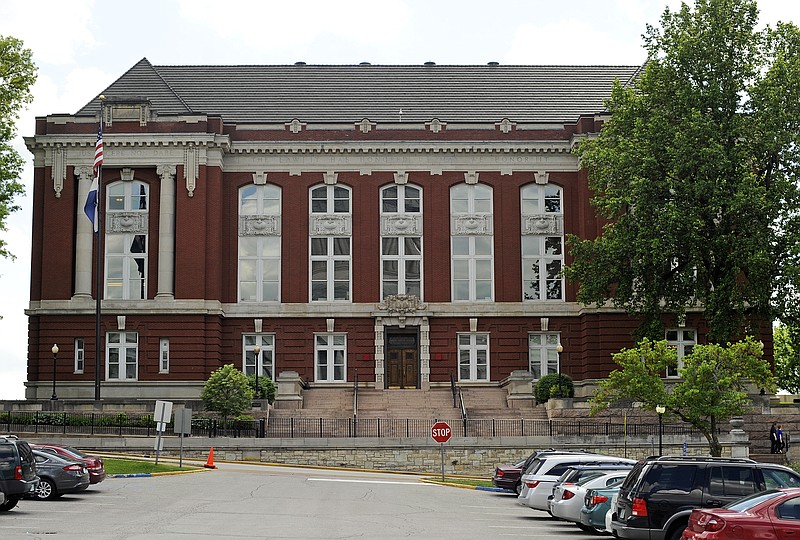It now is up to Missouri's Supreme Court to decide whether Moniteau County Prosecutor Shayne Healea will face a criminal trial in Shelby County, and whether the attorney general's office still can be the special prosecutor in that case.
The seven-member high court heard oral arguments in the case Tuesday morning - and spent much of its time questioning the attorney general's role in the case.
Healea faces five criminal charges filed by a Boone County grand jury after an October 2014 accident in the parking lot behind Addison's Restaurant in Columbia.
He's accused of backing his pickup truck, with the tailgate down, into the restaurant's rear wall, knocking a portion of the wall into the restaurant and injuring several people.
Healea was charged with leaving the scene of an accident where there was an injury or property damage, and with four counts of second-degree assault for operating a vehicle while intoxicated, resulting in injury.
After Boone Prosecutor Dan Knight recused himself because he and Healea both were officers in the state prosecuting attorneys association, the attorney general's office was appointed as special prosecutor.
Healea's trial on the charges has been put on hold pending the outcome of the Supreme Court case.
If it occurs, the trial will be heard in Shelbyville on a change of venue from Boone County.
In several different court hearings, including Tuesday's Supreme Court arguments, Healea's attorney, Shane Farrow of Jefferson City, has said that - after Healea was arrested that night - the Columbia police violated his federal 6th Amendment constitutional right to have a private conversation with his attorney, when they placed Healea in a holding cell and recorded both sides of the conversation.
Farrow said that recording remains on the police department's servers and that a copy was given to the attorney general's office before the case was presented to the grand jury, resulting in the charges.
"This case primarily relates to the attorney-client privilege, particularly in criminal matters," Farrow told the court, "and what do we do when that privilege has been violated?"
When the case was transferred to Shelby County and assigned to Judge Frederick P. (Rick) Tucker, Farrow raised the constitutional issue and asked that the charges be dropped.
He told the Supreme Court that Julie Tolle, the assistant attorney general originally assigned to prosecute the Healea case, told Tucker "that she spoke to the chief of police in Columbia, as well as the arresting officer, and that they had no knowledge that any such recording existed."
But the recording, labeled "Building Video #5," later was found in the attorney general's files and ultimately shared with Farrow.
With the agreement of both sides, Tucker appointed retired Circuit Judge Hadley Grimm to be a special master and review Farrow's arguments of constitutional violations.
After a hearing in early December 2016, Grimm issued a report that there still could be a trial, even though Healea's rights had been violated.
Farrow appealed to the state's St. Louis-based Eastern District appeals court, and it ruled last June the trial could move forward but, among other things, ordered Tucker to replace the attorney general's office as the special prosecutor.
Solicitor D. John Sauer told the court Tuesday that "no member of the attorney general's office has viewed this particular recording, and Healea can cite no evidence to the contrary."
He said that, when considering the argument that the entire attorney general's office should be disqualified, "I think it's the conduct of the attorneys that the court looks at, and considers whether there's an appearance of impropriety in these attorneys' pursuit of the case."
Sauer said the state concedes that, in making the recording, Columbia police "violated the 6th Amendment, (state) statute (and) their own policies."
The original assistant attorney general assigned to the case no longer works for the office, and it can shield its work in Healea's case from anyone who previously was involved with it.
In his rebuttal, Farrow told the Supreme Court: "Now that we all know the attorney general's office had this video for two years before they relinquished it, the appearance of impropriety is clear. The appearance damages the criminal justice system, if the attorney general's office is allowed to continue as the special prosecutor in this case."
As is usual after hearing oral arguments, the Supreme Court announced no deadline for issuing a ruling in the case.

